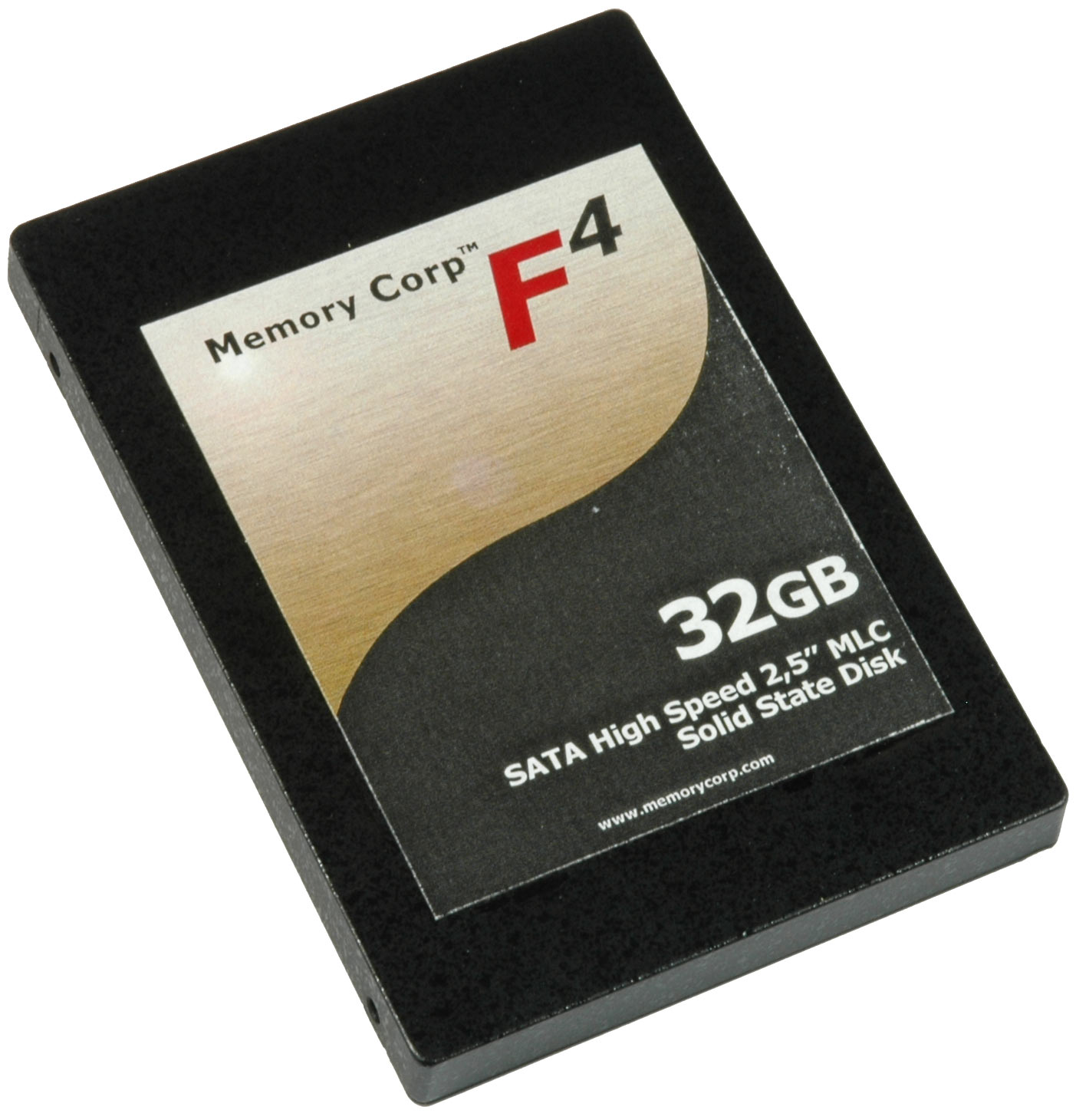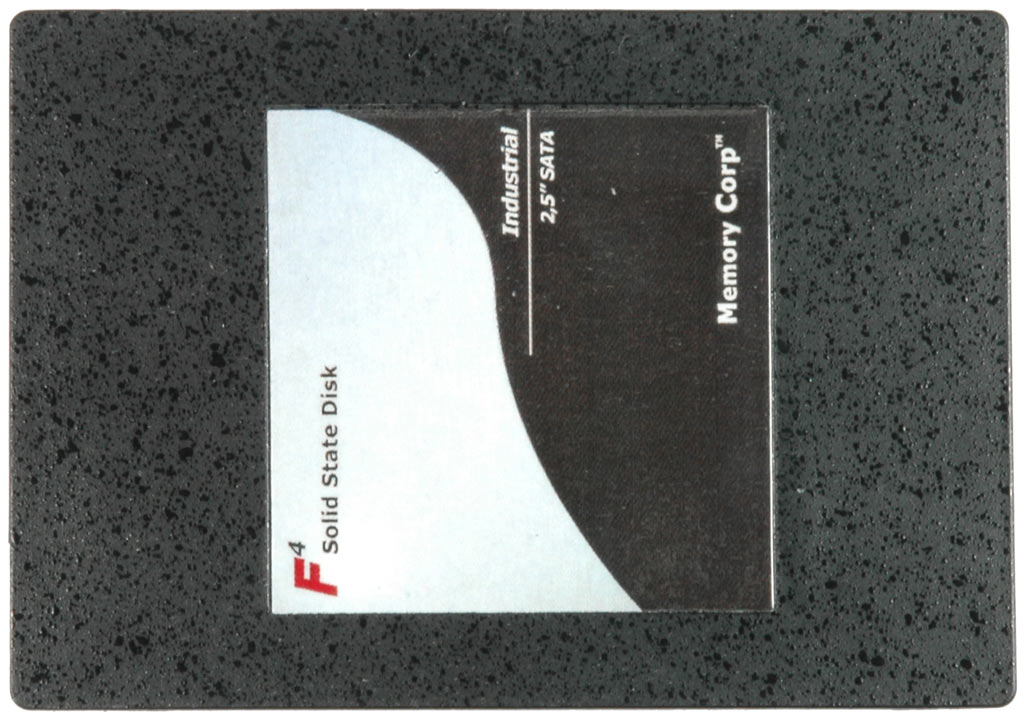Six New SSDs: Can Intel Be Dethroned?
Memory Corp F4 MLC SSD, 32 GB
Memory Corp provided us with two flash SSDs to review: the F4 single-level cell (SLC) drive, which is an industrial high-performance drive (see the next page) and the F4 MLC for business customers. The F4 MLC is based on cheaper MLC flash memory and is available from 8 GB to 128 GB capacities. We looked at a 32 GB model.
The data sheet talks about 150 MB/s read performance and 90 MB/s write throughput. Our testing revealed considerably different results: 110 MB/s sequential read throughput and 39 MB/s sequential write transfer rate. We also measured the interface throughput to be sure that we weren’t creating a bottleneck for the SATA/300 device: 175.4 MB/s interface bandwidth was available. Clearly, the controller and/or flash memory aren’t capable of sustaining constant, high throughput.
I/O Performance Nightmare
While most flash SSDs show excellent access time of less than 1 ms—sometimes even less than 0.1 ms (100 ns)—this does not automatically mean that they also deliver high I/O performance. Have a look at our workstation I/O test or our IOmeter runs. With the exception of the webserver I/O benchmark pattern (which requests blocks small enough to fit into a single request) all other I/O benchmarks attest to the horrible I/O performance of this drive. Even conventional hard drives do better in these benchmarks!
Acceptable Application Benchmarks and Power Consumption
The PCMark application benchmarks suffer from the low I/O performance, but they still show that the drive is rather quick; at least, quicker than conventional hard drives. The 0.7 to 1.9 W power consumption was very acceptable as well. Check out the power consumption for DVD playback in the charts section as well, where you’ll find that this drive consumed the least power to deliver this defined stream of data.
Get Tom's Hardware's best news and in-depth reviews, straight to your inbox.
Current page: Memory Corp F4 MLC SSD, 32 GB
Prev Page Chaintech Apogee SSD, 64 GB Next Page Memory Corp F4 SLC SSD, 32 GB
